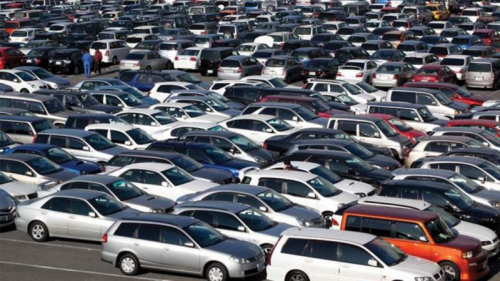SECTOR INSIGHT 18/04/2022
15% Imported Vehicle Levy Illegal, Against Finance Act — Ex-NAC Panel Member

A former member of the National Automobile Commission committee, Lucky Amiwero, has described the controversial 15 per cent levy slammed on imported vehicles by the Nigeria Customs Service as illegal, saying that it contravenes the nation’s Finance Act.
The NCS had, last weekend, introduced a 15 per cent National Automobile Commission levy on used imported vehicles, a decision which didn’t go down well with clearing agents in the country’s maritime sector.
The agents argued that the NAC levy was mostly on new vehicles, questioning the rationale behind the introduction of the duty on used vehicles.
In a quick response, the service, in a statement by the National Public Relations Officer, Timi Bomodi, said the move was in compliance with the Economic Community of West Africa Common External Tariff.
The statement read in part, “On Friday the 1st of April 2022, the Nigeria Customs Service migrated from the old version of the ECOWAS Common External Tariff (2017- 2021) to the new version (2022- 2026). This is in line with World Customs Organization five years review of the nomenclature. The contracting parties are expected to adopt the review based on regional considerations and national economic policy.
“The nation has adopted all tariff lines with few adjustments in the extant CET. As allowed for in Annex II of the 2022-2026 CET edition, and in line with the Finance Act and the National Automotive policy, NCS has retained a duty rate of 20 per cent for used vehicles as was transmitted by ECOWAS with a NAC levy of 15 per cent. New vehicles will also pay a duty of 20 per cent with a NAC levy of 20 per cent as directed in the Federal Ministry of Finance letter ref. no. HMF BNP/NCS/CET/4/2022 of 7th April 2022.
“It is instructive to note that domestic fiscal policy on the importation of motor vehicles and other items is targeted at growing the local economy in these sectors. The focus of NCS is on implementation of these policies in the hope that it achieves its desired objectives in line with National Automotive Policy and other fiscal policies of the government.”
But in a chat with our correspondent on Friday, Amiwero, who is also the founder of the National Council of Managing Directors of Licensed Customs Agents, said NAC only recommended a two per cent levy.
“Well, the issue about that is not clear yet, because what the law says is that the 15 per cent is on NAC. And on the NAC law, I was a member of the committee meeting that nullified NAC and for the NAC law, it is only two per cent.
“So, bringing NAC at 15 per cent is illegal, it is not legal. When you look at the whole policy, it is confusing and doesn’t make sense. The circular that was issued by the minister in March gives this clarity
“The one Customs signed, which they referred to as migration, has to do with simply moving from Harmonised System Code of the World Customs Organisation. And when you are migrating, you are dropping a lot of items which are no more useful in trade by the whole world.
“So, we have HS Code which is supposed to start from 2022 to 2027 because it is for five years. The one we are using now is from 2017 to 2022, so 2022 to 2027 is a new HS Code, that is the truth about it. So, the conflict is that you are having a 20 per cent duty on used vehicles, and they have 15 per cent on NAC, which Customs has reflected on its system, it contravenes the law on NAC.”
Explaining further, Amiwero said the two per cent NAC duty, which was recommended by the law, was for the cost of insurance and freight.
He said any other thing aside from this contravenes the law, noting that NAC was suspended because there were certain issues within that period.
“The NAC law, that is the National Automotive Design and Development Council, was passed in 2014. Under the financial provision, we have two per cent collection of cost for insurance, so if you are bringing in 15 per cent, you are contravening the NAC law”
“If they say it is a levy, that means it is a new policy that is being introduced by the government; which has not been made public. If you are having a new policy, that means the first policy, which was initiated by NAC for the development of vehicles, was actually suspended; this was because within that time the automotive policy collapsed.”
The frontline freight forwarder said there were conflicting pieces of information in that regard.
“The truth about it is that we are having conflicting information from the government because the same ministry is having two circulars at a specific time.”
According to him, both the 2001 and 2020 Finance Acts did not say anything about 15 percent levy.
“The Finance Acts of 2001, 2020 did not contain all those things they are quoting. The Act only contains issues of reduction, it doesn’t contain levy. The two Acts did not contain those things, the Financial Act of 2020 doesn’t contain those things, so where did they get that one? So, that one must have been incorporated by them.
“The Finance Act of 2020 has provision for the reduction of vehicles and there is no levy on the Financial Act. There is no levy of 20 or 15 per cent, so they should take it to the National Assembly and in the Finance Act of 2021, there is nothing like the levy.



